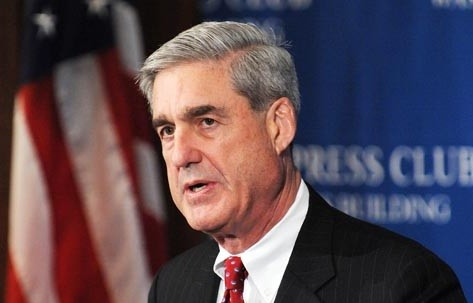Terrorists Could Attack US With Planes Again, Warns FBI Director Robert Mueller
Outgoing FBI boss admits he fears new 9/11 and attacks with WMDs.

The FBI's outgoing director Rober Mueller says he fears terrorists will bombard America with weapons of mass destruction and stage a new attack with hijacked planes.
Speaking as he prepares to step down from his position at the Bureau, Mueller said the nature of the threat has evolved from Osama bin Laden's Al-Qaida "brand" to splinter groups sprouting across the Middle East amid the fallout from the Arab Spring.
"Every one of these countries now has cadres of individuals who you would put in the category of extremists, violent extremists, and that will present threats down the road," he said.
Mueller, who oversaw the bureau's transformation into a terrorism-fighting agency, is to step aside on 4 September, 12 years after taking charge in the week following the 9/11 attacks.
He will be succeeded by former Justice Department official James Comey.
"I always say my biggest worry is an attack on a plane," Mueller said. "And secondly, it's a weapon of mass destruction in the hands of a terrorist and that includes a cyber-capability that trumps the defences that we have."
Mueller also warned of the threat of a cyber-attack on a financial institution or on a sector such as energy "where we do not have sufficient barricades or preventive capabilities."
He stood by his recent testimony to congress, in which he defended the US National Security Agency's classified surveillance programmes.
"I am fairly comfortable and confident that we are doing things the way the American public would expect us to," he said.
The NSA programmes were "tremendously important to the protection, not only from terrorist attacks, but from other threats to the United States", he said.
The former CIA computer expert Edward Snowden's leaks of classified information had "impacted" criminal investigations and were "in the process of impacting capabilities around the world", Mueller added, but declined to give further details.
His comments came amid new revelations showing the NSA trawled through an estimated 56,000 emails and other communications each year by Americans not connected to terrorism.
Mueller declined to comment on possible moves by Congress to restrict the surveillance programmes, or to demand greater disclosure.
His tenure saw terrorist plots to bring down a trans-Atlantic flight in 2001 thwarted, along with plans to bring down a Detroit-bound jetliner at Christmas 2009 and US-bound cargo planes carrying printer cartridge bombs.
However, the Boston Marathon bombings which left three dead and hundreds injured in April, and the 2009 shooting that killed 13 and injured more than 30 at Fort Hood, Texas, showed the FBI's efforts were not infallible.
"I would say you feel the most pain from what happened at some place like Fort Hood or what happened up in Boston," Mueller said.
"That's not to say that you could have prevented it, that's speculation. But the fact of the matter is, you sit down with victims' families, you see the pain they go through and you always wonder whether there isn't something more" that could have been done.
Mueller first became involved with counter-terrorism work in 1988, when Pan Am Flight 103 was blown up over Lockerbie.
"I spent lot of time on that investigation over at the Department of Justice" he said, adding that he still spends time with the survivors of "that horrible, horrible disaster".
© Copyright IBTimes 2025. All rights reserved.



















